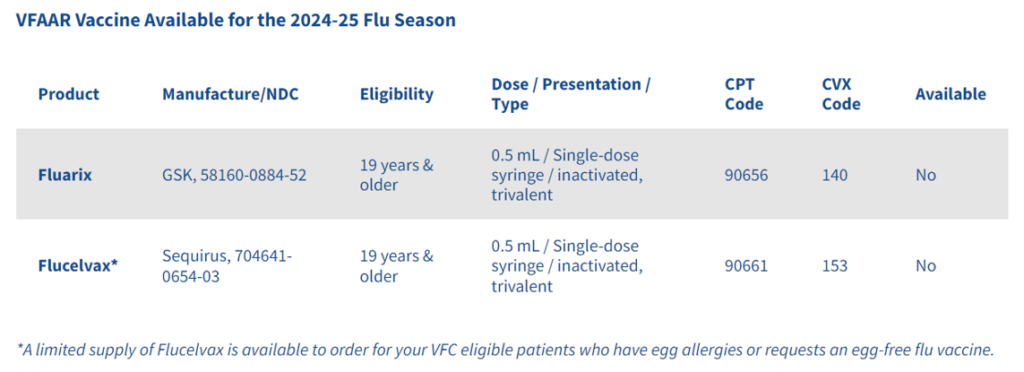11 Sep 2024 VFAAR Flu Ordering Opens Tomorrow
VFAAR Flu Ordering Opens Tomorrow
VFAAR providers can order flu vaccine for the 2024-2025 season starting tomorrow, Wednesday, September 11. Make sure your site is ready!
All flu vaccine from the 2023-2024 season must be wasted or returned before you can order flu vaccine for the 2024-2025 season. Guidance on accounting for remaining doses can be found here. To account for any unused 2023-24 VFC/VFAAR flu vaccine still at your site using PhilaVax:
- Process a return for the unopened vials online in the Vaccines Returns module. A job aid with step-by-step instructions can be found here.
- Complete an adjustment for any open MDVs in the Inventory Module. A job aid with step-by-step instructions can be found here.
Due to the limited availability of flu vaccine for adults this season, we will have a maximum ordering threshold per site to ensure everyone has access to the flu vaccine. The Immunization Program will make every effort to fulfill your flu vaccine request. If flu product is available in limited quantity, your order may be reduced.
Additional doses will become available throughout the season.

To place your first adult flu order:
- Complete an adult reconciliation (if it’s been more than 2 weeks since your last adult reconciliation).
- Submit your temperature data and email the LTD file to TempCheck@Phila.gov. Upload the CSV file into PhilaVax.
Visit our Flu Page for more information on what vaccines are available and to gain access to flu resources and free print materials.

